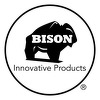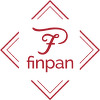
International Design Continuing Education Council Inc.
International Design Continuing Education Council Inc. (IDCEC) - https://redirect.aecdaily.com/s18122/www.idcec.org and the founding member associations, The American Society of Interior Designers (ASID), The International Interior Design Association (IIDA) and The Interior Designers of Canada (IDC)
Displaying 226 - 244 of 244 results.
FIRST PREV [126-150] [151-175] [176-200] [201-225] [226-244] LAST

 Architectural resin panels are engineered to suit the demands of a wide array of interior and exterior applications and offer almost unlimited combinations of color, pattern, and design. This course presents the features and options that allow resin panels to meet design requirements for both function and beauty and discusses how resin panels may play a role in projects seeking LEED® v4 BD+C, ID+C, and O+M; Living Building ChallengeSM v3.1; or WELL Building Standard® v1 certification.
Architectural resin panels are engineered to suit the demands of a wide array of interior and exterior applications and offer almost unlimited combinations of color, pattern, and design. This course presents the features and options that allow resin panels to meet design requirements for both function and beauty and discusses how resin panels may play a role in projects seeking LEED® v4 BD+C, ID+C, and O+M; Living Building ChallengeSM v3.1; or WELL Building Standard® v1 certification.

https://redirect.aecdaily.com/s777575/www.aecdaily.com/course/788434
This course contains sustainable design information. See the course details page for more information.
This course is ONLINE: SELF-PACED. Experience it on your own schedule, at your convenience.

 Redwood lumber and timbers from sustainably managed and harvested forests offer warmth, durability, and strength in indoor and outdoor projects. This course covers the performance characteristics, environmental benefits, and applications of Redwood, including several case studies that highlight the beauty and versatility of Redwood products. Details are presented on differentiating the grades of Redwood, specifying the right grade for the project type, and the specification resources that are available.
Redwood lumber and timbers from sustainably managed and harvested forests offer warmth, durability, and strength in indoor and outdoor projects. This course covers the performance characteristics, environmental benefits, and applications of Redwood, including several case studies that highlight the beauty and versatility of Redwood products. Details are presented on differentiating the grades of Redwood, specifying the right grade for the project type, and the specification resources that are available.

https://redirect.aecdaily.com/s632921/www.aecdaily.com/course/969584
This course contains sustainable design information. See the course details page for more information.
This course is ONLINE: SELF-PACED. Experience it on your own schedule, at your convenience.

 This presentation celebrates the value of incorporating artisanal, handcrafted fixtures and furnishings into a building’s design. Not only are these products unique, functional, and aesthetically appealing, but they can also establish a sense of connection with their maker. Many artisanal, handcrafted products are made using traditional techniques that have been passed down over time, often from generation to generation. And because many of these products are made from sustainable, recycled, or reclaimed materials that are locally available, they can help reduce the environmental impact of a new build. This course illustrates how sourcing artisan-made products for their projects can allow designers and builders to effect social, economic, and environmental change.
This presentation celebrates the value of incorporating artisanal, handcrafted fixtures and furnishings into a building’s design. Not only are these products unique, functional, and aesthetically appealing, but they can also establish a sense of connection with their maker. Many artisanal, handcrafted products are made using traditional techniques that have been passed down over time, often from generation to generation. And because many of these products are made from sustainable, recycled, or reclaimed materials that are locally available, they can help reduce the environmental impact of a new build. This course illustrates how sourcing artisan-made products for their projects can allow designers and builders to effect social, economic, and environmental change.

https://redirect.aecdaily.com/s610566/www.aecdaily.com/course/857878
This course contains sustainable design information. See the course details page for more information.
This course is part of one or more "Course Collections". Click here to view the details.
This course is ONLINE: SELF-PACED. Experience it on your own schedule, at your convenience.

 In designing successful interior building spaces that positively impact their occupants, it is critical to have knowledge of the principles of acoustics and noise control and link them to design methodology. This course explores these principles, with a special emphasis on common building types where acoustics and noise control are often required and noise can have detrimental effects on users, such as athletic facilities and performance spaces.
In designing successful interior building spaces that positively impact their occupants, it is critical to have knowledge of the principles of acoustics and noise control and link them to design methodology. This course explores these principles, with a special emphasis on common building types where acoustics and noise control are often required and noise can have detrimental effects on users, such as athletic facilities and performance spaces.

https://redirect.aecdaily.com/s14798/www.aecdaily.com/course/1046426
This course is ONLINE: SELF-PACED. Experience it on your own schedule, at your convenience.

 Commercial restrooms are used in various settings, from office buildings to hospitals. This course discusses how commercial restroom design can meet the needs of all users through accessibility, universal design, and inclusive design. The public nature of restrooms requires excellent air quality, a trusted level of cleanliness, durability, and water conservation. The importance of fixtures with features including touchless technology, vandalism resistance, and water efficiency is also discussed.
Commercial restrooms are used in various settings, from office buildings to hospitals. This course discusses how commercial restroom design can meet the needs of all users through accessibility, universal design, and inclusive design. The public nature of restrooms requires excellent air quality, a trusted level of cleanliness, durability, and water conservation. The importance of fixtures with features including touchless technology, vandalism resistance, and water efficiency is also discussed.

https://redirect.aecdaily.com/s8547/www.aecdaily.com/course/986127
This course contains sustainable design information. See the course details page for more information.
This course contains accessible design information. See the course details page for more information.
This course is ONLINE: SELF-PACED. Experience it on your own schedule, at your convenience.

 This course encourages dialogue and shares methods to adopt inclusive design approaches within the daily practice of design while seeking to inspire industry professionals to imagine an inclusive world that is powered by your creativity and sense of humanity. As our world becomes smaller and smaller, humanity aspires to provide care, work, and play and live connected experiences that are more meaningful. As designers, it is our responsibility to create considerate environments that support this quality of life for all. This is the Future of Design.
This course encourages dialogue and shares methods to adopt inclusive design approaches within the daily practice of design while seeking to inspire industry professionals to imagine an inclusive world that is powered by your creativity and sense of humanity. As our world becomes smaller and smaller, humanity aspires to provide care, work, and play and live connected experiences that are more meaningful. As designers, it is our responsibility to create considerate environments that support this quality of life for all. This is the Future of Design.

https://redirect.aecdaily.com/s940949/www.aecdaily.com/course/942214
This course contains sustainable design information. See the course details page for more information.
This course contains accessible design information. See the course details page for more information.
In order to download this course, a USD $35.00 fee must be paid.
This course is ONLINE: SELF-PACED. Experience it on your own schedule, at your convenience.

 Direct vent fireplaces are safe and efficient supplemental heat sources in today’s homes. This course reviews the innovative design options for gas fireplaces, including media options, cool wall technology, and safety barriers. Direct and power vent heat delivery systems are discussed, and the impact of standing versus electric pilot lights on energy efficiency is examined.
Direct vent fireplaces are safe and efficient supplemental heat sources in today’s homes. This course reviews the innovative design options for gas fireplaces, including media options, cool wall technology, and safety barriers. Direct and power vent heat delivery systems are discussed, and the impact of standing versus electric pilot lights on energy efficiency is examined.

https://redirect.aecdaily.com/s1043551/www.aecdaily.com/course/1061942
This course contains sustainable design information. See the course details page for more information.
This course is ONLINE: SELF-PACED. Experience it on your own schedule, at your convenience.

 High-performance waterproof panels are engineered to mitigate moisture damage in areas where water is ever present while offering easy installation and lasting beauty. This course reviews the importance of moisture management in wet applications and examines the performance attributes of waterproof panels that make them a complete wall solution.
High-performance waterproof panels are engineered to mitigate moisture damage in areas where water is ever present while offering easy installation and lasting beauty. This course reviews the importance of moisture management in wet applications and examines the performance attributes of waterproof panels that make them a complete wall solution.

https://redirect.aecdaily.com/s15612/www.aecdaily.com/course/1007626
This course contains sustainable design information. See the course details page for more information.
This course is part of one or more "Course Collections". Click here to view the details.
This course is ONLINE: SELF-PACED. Experience it on your own schedule, at your convenience.

 Identify key fenestration design criteria that will fortify buildings against ballistic, blast, forced entry, and environmental threats.
Identify key fenestration design criteria that will fortify buildings against ballistic, blast, forced entry, and environmental threats.

https://redirect.aecdaily.com/s1048457/www.aecdaily.com/course/1058538
This course is ONLINE: SELF-PACED. Experience it on your own schedule, at your convenience.

 Sliding door systems not only save room but also offer users expanded flexibility in how a space functions, providing more or less privacy, circulation, or intimacy with a simple movement. Smooth-working and reliable sliding door hardware ensures that users of all abilities can operate the doors and that the system will perform as intended over its lifetime. This course presents the types of sliding door systems and outlines their suitability for applications ranging from residential to commercial, healthcare, hospitality, and more. A review of system components, specialty systems, and case studies provides guidance on how to choose and install the right system to best meet user needs.
Sliding door systems not only save room but also offer users expanded flexibility in how a space functions, providing more or less privacy, circulation, or intimacy with a simple movement. Smooth-working and reliable sliding door hardware ensures that users of all abilities can operate the doors and that the system will perform as intended over its lifetime. This course presents the types of sliding door systems and outlines their suitability for applications ranging from residential to commercial, healthcare, hospitality, and more. A review of system components, specialty systems, and case studies provides guidance on how to choose and install the right system to best meet user needs.

https://redirect.aecdaily.com/s8258/www.aecdaily.com/course/879634
This course is ONLINE: SELF-PACED. Experience it on your own schedule, at your convenience.

 This course explores the use of coil and extrusion coatings (70% PVDF metal coatings) for protecting and enhancing exterior façades. It demonstrates how utilizing color and aesthetic attributes can further enhance a building’s impact and brand recognition. The coating application/treatment process is also discussed in detail. Sustainability benefits that 70% PVDF coating has to offer are outlined, and real-world case studies show the positive impact that 70% PVDF coatings can have on a project.
This course explores the use of coil and extrusion coatings (70% PVDF metal coatings) for protecting and enhancing exterior façades. It demonstrates how utilizing color and aesthetic attributes can further enhance a building’s impact and brand recognition. The coating application/treatment process is also discussed in detail. Sustainability benefits that 70% PVDF coating has to offer are outlined, and real-world case studies show the positive impact that 70% PVDF coatings can have on a project.

https://redirect.aecdaily.com/s12942/www.aecdaily.com/course/960889
This course is ONLINE: SELF-PACED. Experience it on your own schedule, at your convenience.

 When deciding on outdoor cabinetry, understanding the available material options is essential to the selection of a long-lasting, sustainable choice. This course reviews the pros and cons of these options, with a focus on the attributes, sustainability, and performance characteristics of marine-grade high-density polyethylene (HDPE) material, engineered to withstand extreme conditions while maintaining optimal structural integrity.
When deciding on outdoor cabinetry, understanding the available material options is essential to the selection of a long-lasting, sustainable choice. This course reviews the pros and cons of these options, with a focus on the attributes, sustainability, and performance characteristics of marine-grade high-density polyethylene (HDPE) material, engineered to withstand extreme conditions while maintaining optimal structural integrity.

https://redirect.aecdaily.com/s865150/www.aecdaily.com/course/1039451
This course contains sustainable design information. See the course details page for more information.
This course is ONLINE: SELF-PACED. Experience it on your own schedule, at your convenience.

 Aluminum drywall trim is a high-quality, easy-to-install material that can elevate drywall from a simple wall and ceiling treatment to the paramount feature of a sleek, modern design aesthetic. Provided here is a synopsis of the performance attributes and sustainability features of aluminum trim. This includes the types of trim available, installation details, and design potential, as well as the manufacturing, fabrication, finishing, and specification of aluminum trims.
Aluminum drywall trim is a high-quality, easy-to-install material that can elevate drywall from a simple wall and ceiling treatment to the paramount feature of a sleek, modern design aesthetic. Provided here is a synopsis of the performance attributes and sustainability features of aluminum trim. This includes the types of trim available, installation details, and design potential, as well as the manufacturing, fabrication, finishing, and specification of aluminum trims.

https://redirect.aecdaily.com/s5996/www.aecdaily.com/course/949642
This course contains sustainable design information. See the course details page for more information.
This course is ONLINE: SELF-PACED. Experience it on your own schedule, at your convenience.

 Energy conservation and occupant well-being, comfort, and productivity are issues of increasing concern in building design. This course illustrates how radiant heating and cooling systems address these issues positively and efficiently. It encompasses the various types of systems available and how they can contribute to credit requirements in the LEED® v4.1 Building Design and Construction rating system and the WELL Building Standard™ version 2. System workings, design, aesthetic considerations, advantages, testing and measuring protocols, and installation procedures are reviewed, and the course concludes with several installation examples.
Energy conservation and occupant well-being, comfort, and productivity are issues of increasing concern in building design. This course illustrates how radiant heating and cooling systems address these issues positively and efficiently. It encompasses the various types of systems available and how they can contribute to credit requirements in the LEED® v4.1 Building Design and Construction rating system and the WELL Building Standard™ version 2. System workings, design, aesthetic considerations, advantages, testing and measuring protocols, and installation procedures are reviewed, and the course concludes with several installation examples.

https://redirect.aecdaily.com/s1078698/www.aecdaily.com/course/1097505
This course contains sustainable design information. See the course details page for more information.
This course is ONLINE: SELF-PACED. Experience it on your own schedule, at your convenience.

 Precious metals are valued for their beauty, durability, scarcity, and workability. This course explores the history, symbolism, and characteristics of precious metals and how to use them in modern luxury bath and kitchen design.
Precious metals are valued for their beauty, durability, scarcity, and workability. This course explores the history, symbolism, and characteristics of precious metals and how to use them in modern luxury bath and kitchen design.

https://redirect.aecdaily.com/s610566/www.aecdaily.com/course/1061215
This course is ONLINE: SELF-PACED. Experience it on your own schedule, at your convenience.

 Ensure your turf, plants, and trees are getting the appropriate water—in the right quantity, with the proper safety, at the highest efficiency—to reflect your unique landscape environment. This course addresses the most important factors to be considered to achieve optimal performance. At the “root” of an effective irrigation system is proper water volume, pressure, and safety.
Ensure your turf, plants, and trees are getting the appropriate water—in the right quantity, with the proper safety, at the highest efficiency—to reflect your unique landscape environment. This course addresses the most important factors to be considered to achieve optimal performance. At the “root” of an effective irrigation system is proper water volume, pressure, and safety.

https://redirect.aecdaily.com/s425610/www.aecdaily.com/course/949020
This course is ONLINE: SELF-PACED. Experience it on your own schedule, at your convenience.

 Surface preparation is critical for high-performing, long-lasting flooring. Learn about the latest innovations and installation techniques in surface preparation that prevent floor damage while mitigating moisture and noise.
Surface preparation is critical for high-performing, long-lasting flooring. Learn about the latest innovations and installation techniques in surface preparation that prevent floor damage while mitigating moisture and noise.

https://redirect.aecdaily.com/s2580/www.aecdaily.com/course/1067126
This course contains sustainable design information. See the course details page for more information.
This course is ONLINE: SELF-PACED. Experience it on your own schedule, at your convenience.

 Rooftop deck systems offer the design flexibility to create adaptable, sustainable outdoor spaces that provide myriad environmental, social, economic, and aesthetic benefits. This course presents the three pillars of sustainability and how building products, materials, and systems can contribute to sustainable design. It outlines forest management objectives and practices and the responsible sourcing of wood for rooftop deck tiles. Case studies exemplify how rooftop deck systems can contribute to sustainable design objectives.
Rooftop deck systems offer the design flexibility to create adaptable, sustainable outdoor spaces that provide myriad environmental, social, economic, and aesthetic benefits. This course presents the three pillars of sustainability and how building products, materials, and systems can contribute to sustainable design. It outlines forest management objectives and practices and the responsible sourcing of wood for rooftop deck tiles. Case studies exemplify how rooftop deck systems can contribute to sustainable design objectives.

https://redirect.aecdaily.com/s17339/www.aecdaily.com/course/1084526
This course contains sustainable design information. See the course details page for more information.
This course is ONLINE: SELF-PACED. Experience it on your own schedule, at your convenience.

 Bathrooms can be dangerous places for people with and without physical limitations. The prevalence of bathroom falls amongst persons of all age groups and levels of ability has driven the trend of accessible shower design. Presented here is an overview of how curbless shower pans are designed for durability and safety, and to meet the needs of accessible design. Included are discussions on traditional and modern shower pan design and installation methods and their associated drawbacks and benefits. Industry resources and standards are outlined.
Bathrooms can be dangerous places for people with and without physical limitations. The prevalence of bathroom falls amongst persons of all age groups and levels of ability has driven the trend of accessible shower design. Presented here is an overview of how curbless shower pans are designed for durability and safety, and to meet the needs of accessible design. Included are discussions on traditional and modern shower pan design and installation methods and their associated drawbacks and benefits. Industry resources and standards are outlined.

https://redirect.aecdaily.com/s13907/www.aecdaily.com/course/905632
This course contains accessible design information. See the course details page for more information.
This course is ONLINE: SELF-PACED. Experience it on your own schedule, at your convenience.

 Cellulose insulation has been used successfully by builders and designers for hundreds of years to provide comfort and warmth. Today, builders and designers also consider sustainability principles, climate change, occupant health and wellness issues, energy conservation, and carbon sequestration. Advanced cellulose insulation addresses all those areas as well. This course explains its environmental benefits, including its carbon capture ability, how it improves occupant health and well-being, and its numerous high-performance thermal, acoustic, and fire-resistant attributes.
Cellulose insulation has been used successfully by builders and designers for hundreds of years to provide comfort and warmth. Today, builders and designers also consider sustainability principles, climate change, occupant health and wellness issues, energy conservation, and carbon sequestration. Advanced cellulose insulation addresses all those areas as well. This course explains its environmental benefits, including its carbon capture ability, how it improves occupant health and well-being, and its numerous high-performance thermal, acoustic, and fire-resistant attributes.

https://redirect.aecdaily.com/s379494/www.aecdaily.com/course/1067199
This course contains sustainable design information. See the course details page for more information.
This course is part of one or more "Course Collections". Click here to view the details.
This course is ONLINE: SELF-PACED. Experience it on your own schedule, at your convenience.

 In recent years, the inclusion of wine cellars has become a hallmark of luxury and upscale housing, extending beyond individual homes to multifamily residences, bars, private clubs, and restaurants. This course is a practical guide for architects, designers, general contractors, and engineers on building attractive, efficient, and highly functioning wine cellars that successfully integrate technical requirements with design intent.
In recent years, the inclusion of wine cellars has become a hallmark of luxury and upscale housing, extending beyond individual homes to multifamily residences, bars, private clubs, and restaurants. This course is a practical guide for architects, designers, general contractors, and engineers on building attractive, efficient, and highly functioning wine cellars that successfully integrate technical requirements with design intent.

https://redirect.aecdaily.com/s1078631/www.aecdaily.com/course/1094744
This course is ONLINE: SELF-PACED. Experience it on your own schedule, at your convenience.